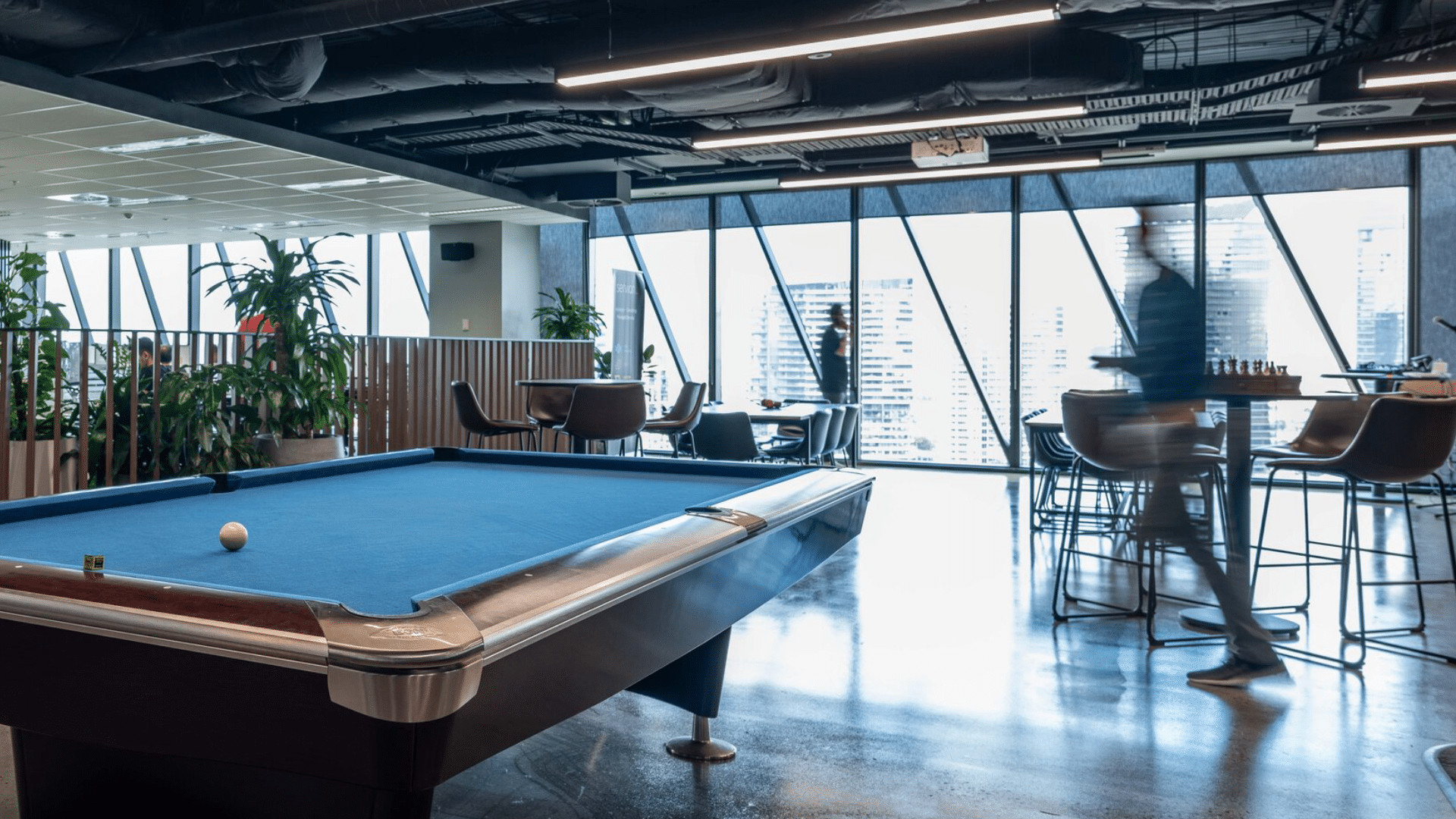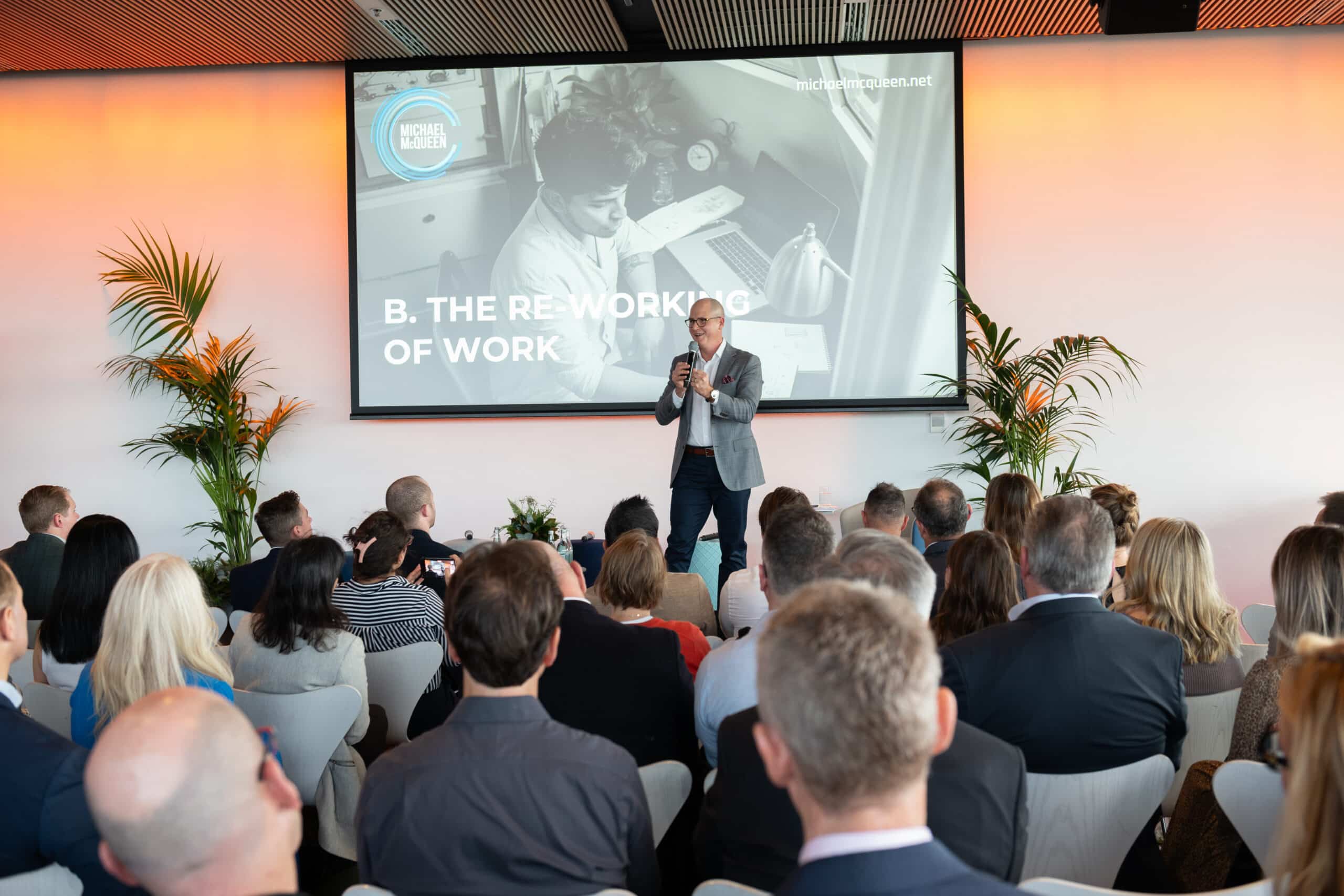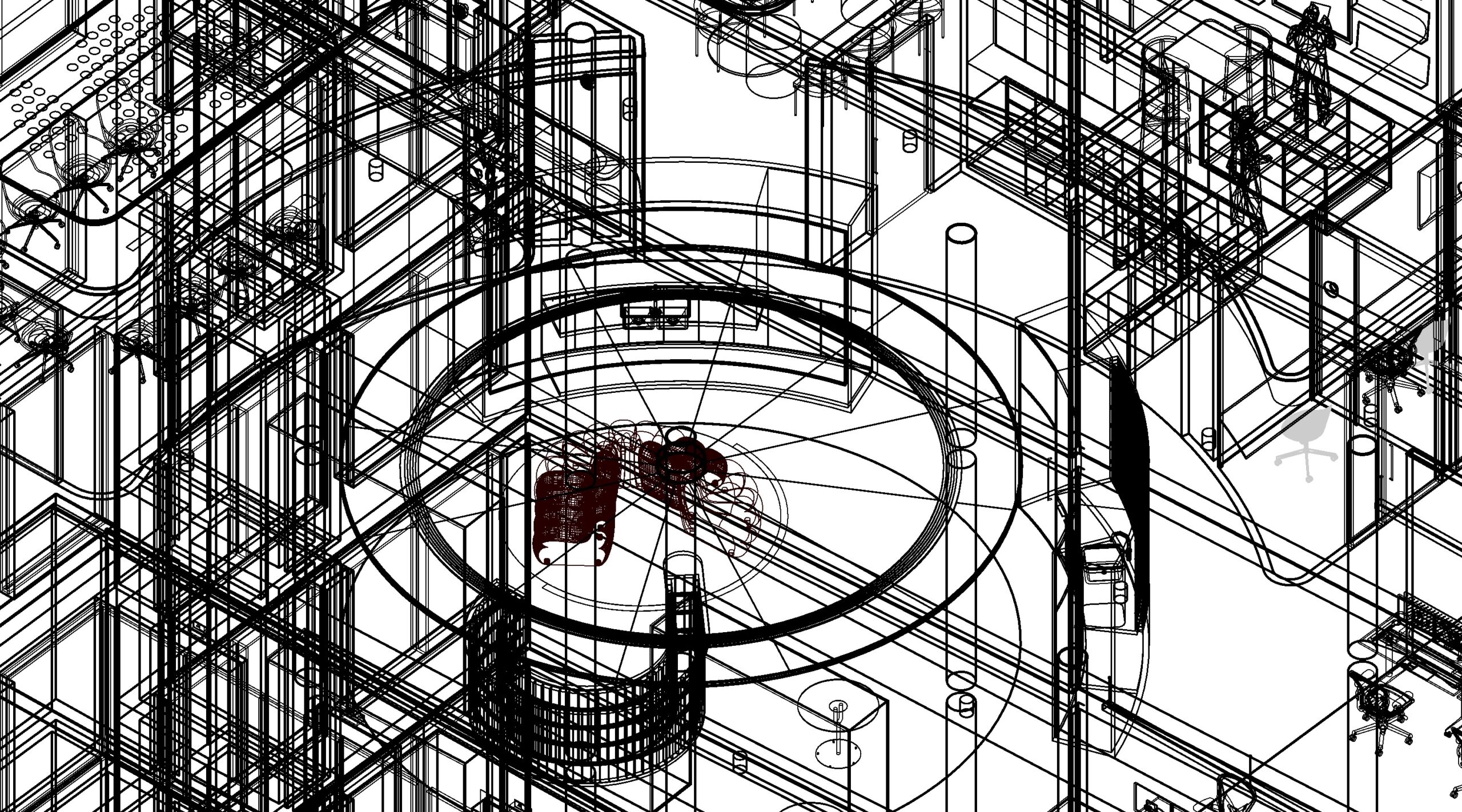
To understand the future of work in Australian businesses, Spaceful recently undertook a research project that surveyed over 850 senior executives from 24 industries to understand the top business challenges they are facing and tactics they are using to mitigate them.
The Executive Insights Report 2024, revealed that when it comes to People & Culture, nearly half (40%) of Australian leaders agree that talent attraction and retention is their number one challenge heading into 2024.
Gen Z, born 1995 – 2009 and 15 – 29 years old in 2024, compromise 20% of Australia’s population and by 2025, it is said that they will make up 27% of the workforce – Source. Knowing this, it would be remiss of organisations to ignore what Gen Z want from the workplace, especially if they want to attract and retain top Gen Z talent.
Here are the top 4 priorities Gen Z is looking for in the physical workspace heading into 2024:
01. The latest in workplace technology
Gen Z were born into a digital world. Categorised as ‘digital natives’ and ‘innovators’, this generation does not hesitate to incorporate cutting-edge technologies into their daily life, in fact, they thrive on it. Consequently, Gen Z are attracted to physical workspaces that offer the latest in workplace technology. 80% of Gen Z aspires to work with trailblazing technology, as it has been a part of their life since birth, and when it comes to choosing employment, 91% say technology would influence their choice among similar employment offers – Source.
Interactive displays, intelligent devices, generative AI and other progressive software solutions are no longer nice-to-haves, but rather essentials in today’s workplace to attract and retain Gen Z – Source. Innovations such as smart office sensors can offer insights on movement in the office, pinpointing ‘cold spots’ that are not fully optimised, and identify any other efficiency bottlenecks within the physical environment – Source. Interactive office maps eliminate the frustration of not knowing where to meet colleagues within the office and what collaborations spaces are available in real time – Source. Biometric access control systems are gaining popularity as not only a more secure way to safeguard physical places such as offices, but to also eliminate access-granting accessories such as badges or fobs – Source.
02. Focus on sustainability, wellbeing and DE&I
Concerns around climate change have a considerable impact on the Gen Z decision-making process when it comes to navigating their career and workplace, with many insisting that companies step up and take action in the fight against it – Source. They value, and are more likely to choose, companies that practice sustainability in the workplace and office design; prioritising features such as energy efficiency, waste reduction, eco-friendly materials and biophilic elements – Source. Discover more about green workspaces and the benefits it brings here.
According to Deloitte’s yearly Gen Z and Millennial Survey, nearly 1/2 of Gen Zs claim to feel stressed or anxious at work most or all of the time – Source. Therefore, attention to mental health and wellness within the office setting is key for this generation. They are looking for amenities like gyms and cleaning services, wellness spaces, access to outdoor spaces, additional support and gathering areas to encourage socialising and other spaces where they can intentionally disrupt the repetition of their daily work routines – Source. In general, their office space needs to be designed with the mitigation of burnout in mind.
In line with wellbeing, designing an office space for diversity, equality and inclusion (DE&I) is of high importance to Gen Z. Designing with DE&I in mind ensures the accessibility and usability of a workspace by a broad range of people, irrespective of any differences, without the need to specially adapt. That means, giving them the choice to modify their environment to suit their preferences. Learn more about the importance of designing for DE&I here.
03. A balance between active collaboration and privacy (i.e., multifunctional workspaces)
First and foremost, according to Hari Kolam, CEO of Findem, a talent and acquisition management platform, the goal of Gen Z is to “work for a company with a remarkable culture, and if that’s not being demonstrated to them early on, they may go off to a competitor” – Source. Agile, open plan, hotdesking, layouts help to encourage a culture that Gen Z prefers, one with comradery, collaboration and that also downplays status. This is a social bunch and it’s one of the main reasons Gen Z likes to venture into the workplace.
However, while this generation appreciates a variety of spaces to co-create, connect, and socialise, dedicated spaces for both collaboration and privacy are required. 81% of Gen Z are encouraged to come into offices that have both dedicated spaces for collaborative work, and quiet zones to complete work that requires intense focus – Source. Versatility within the work environment is crucial for them to efficiently transition between different tasks and work styles throughout the day – Source.
04. WFH flexibility
Lastly, Gen Z, like Millennials, value work from home flexibility with some form of remote or hybrid work option available. In Deloitte’s survey mentioned earlier, ¾ respondents who are currently working in remote or hybrid jobs would consider looking for a new job if their employer asked them to go on-site full time. Taking this option away presents a clear risk for talent attraction and retention, as Gen Z values their independence and believe in the flexibility to decide for themselves when and where they will be the most productive – Source.
That being said, while remote work options are a must, they still acknowledge the impact of a fully remote work situation. They consider the positive effects of proximity bias and socialisation to be important aspects for both career progression and their mental health in general. This is why their preference is a hybrid work model.


